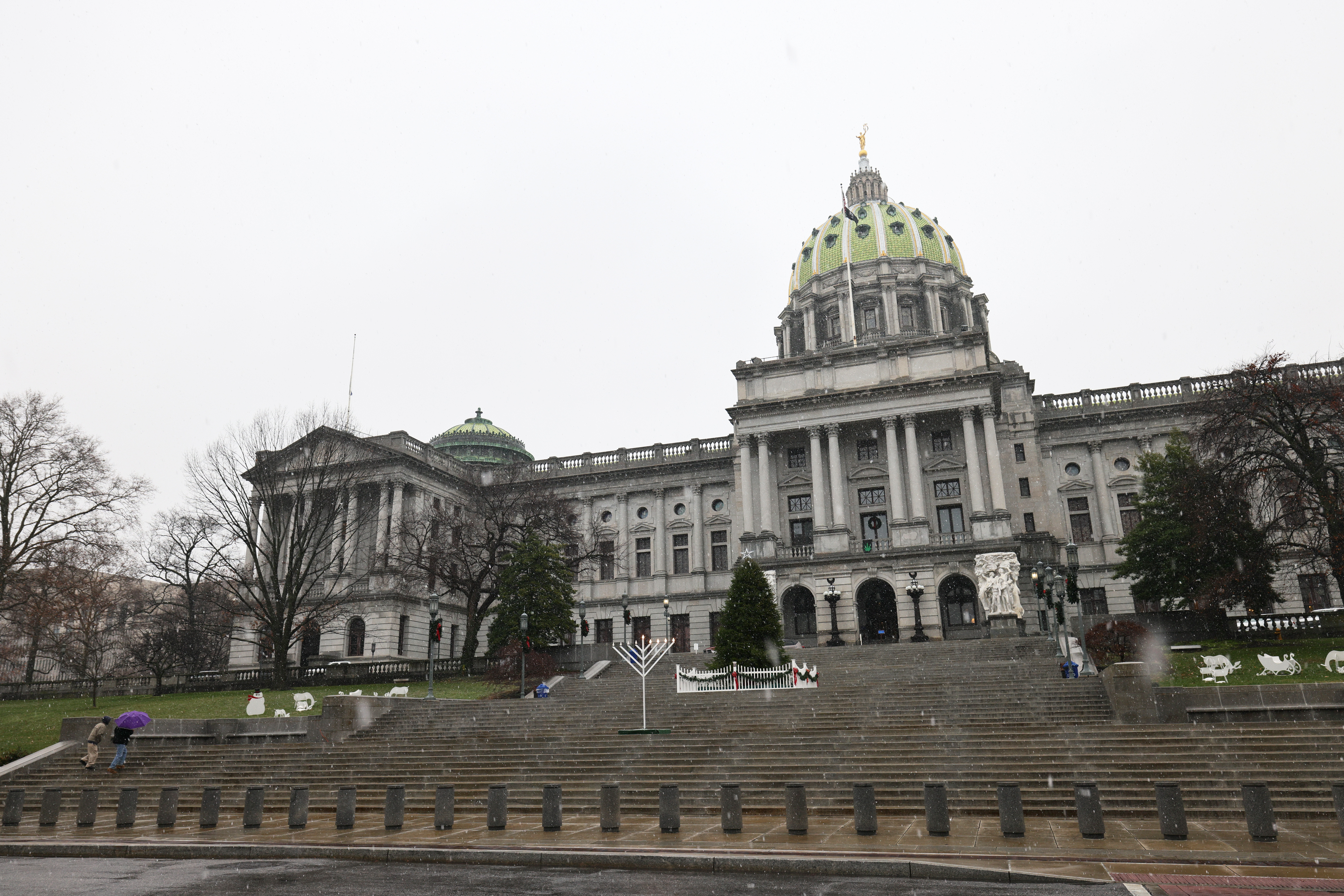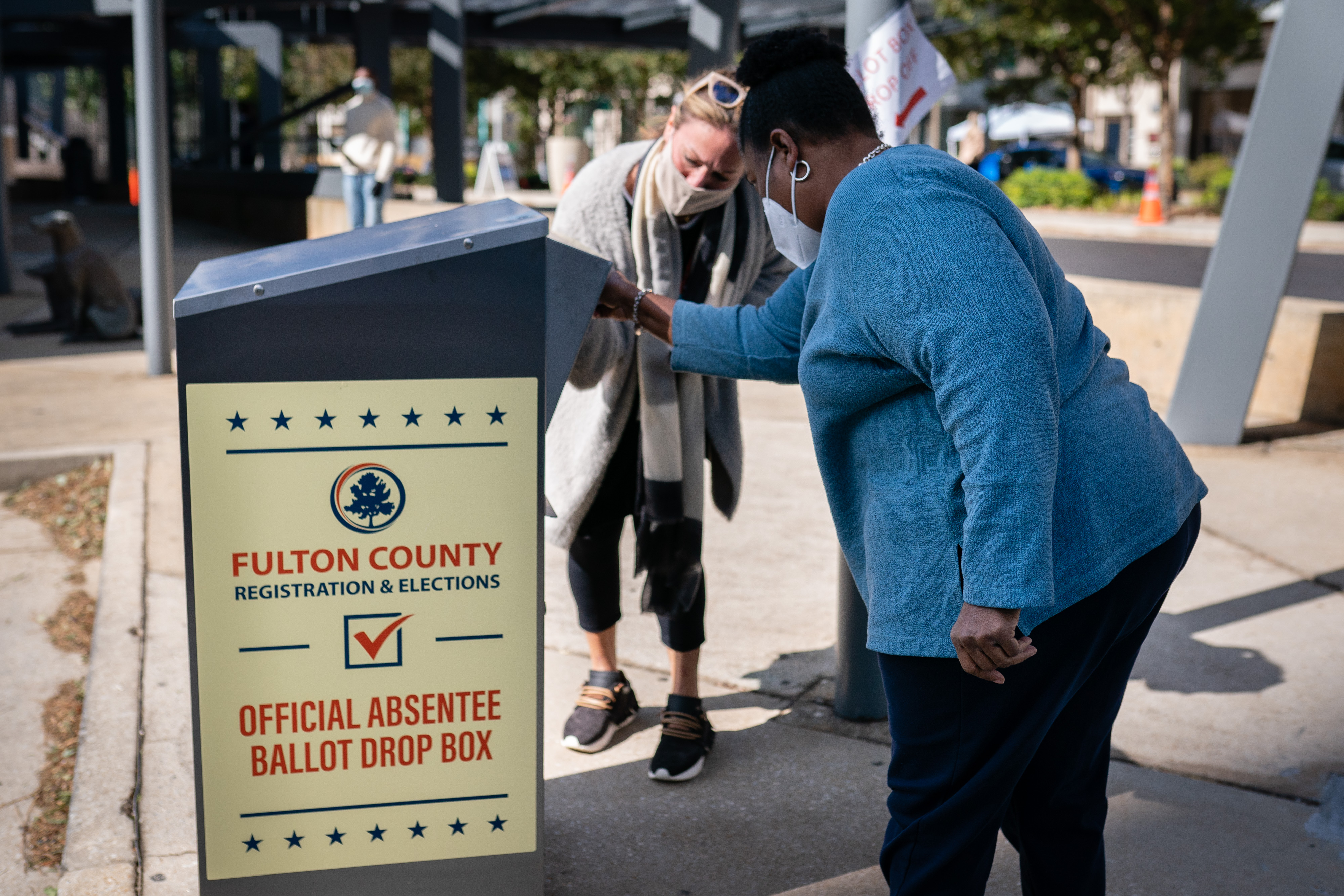Peter Urscheler, mayor of Phoenixville Borough in the Philadelphia suburbs, remembers some of his neighbors driving all the way to the county seat half an hour away to drop off their mail-in ballots ahead of the presidential election last November.
"I know a number of voters who drove all the way to West Chester to make sure their mail-in ballot was counted," Urscheler said.
The election in Pennsylvania, which saw record turnout, including more than 2.6 million mail-in ballots, has been hailed as a success almost universally by expert experts and officials who oversaw the process at the county level. Still, President Donald Trump, who lost Pennsylvania, has continued to sow seeds of uncertainty and Republican lawmakers have fanned the flames.
But after months of political infighting, an Election Law Advisory Board will convene later this month for the first time to take a hard look at what went right and what went wrong.
Get top local stories in Philly delivered to you every morning. Sign up for NBC Philadelphia's News Headlines newsletter.
Urscheler will be one of the 23 people on the board, and he is excited to meet Jan. 28. The board was created by the General Assembly last April, but has yet to meet.
Another member of the board, Pat Christmas, who is policy director at the Philadelphia-based election watchdog Committee of Seventy, said there is a great opportunity to recommend improvements to the state's elections.
"Hopefully, it’ll be a space for more constructive debate around the election code," Christmas said. "The rhetoric and some of the accusations made to date are out of control and we need to ground this debate."
He said recommendations should help voters cast ballots, not the other way around.
"Putting in place laws making it harder to vote are irresponsible," Christmas said.
One of the first proposals of the new General Assembly session was put forward by two Republican lawmakers that would do away with mail-in voting. It would reverse a law enacted less than 18 months earlier and seen by many as a reason for such a high turnout amid the COVID-19 pandemic.
"During this past Presidential Election, we witnessed mass confusion and mail-in ballot irregularities and I know that my district office was not alone in getting unprecedented amounts of phone calls from concerned constituents about election fraud through this mail-in ballot system," state Rep. Michael Puskaric said in announcing the legislation.
There has been no evidence of widespread election fraud in Pennsylvania. Perhaps the most notable scandal to emerge so far involved a Delaware County man who allegedly cast votes for Donald Trump using the names of his dead mother and his dead mother-in-law.
Two improvements that county election officials will push for before the next election are about improving mail-in voting, not abolishing it, according to Lisa Schaefer, executive director of the County Commissioners Association of Pennsylvania.
"Our counties did a remarkably successful job overseeing the election considering the perfect storm that emerged in 2020," Schaefer said. "We know now having kicked the tires, there are def way to improve the administration and improve voter experience."
The two improvements that her association, which represents all 67 counties in Pennsylvania, will push for are:
Counting Mail-in Ballots Before Election Day
It's officially called pre-canvassing, or opening and counting mail-in ballots before Election Day. Schaefer said county commissioners would love to be able to start tallying mail-in votes earlier than Election Day because it would speed up the entire process of determining winners.
"We predicted in the weeks before the election last November that it would take days to count all the votes," Schaefer said. "We were right."
In Pennsylvania, county commissioners are in charge of elections and their staffs have the most important roles when it comes to vote counting.
State election law does not currently allow for pre-canvassing. Gov. Tom Wolf, along with county officials across the state, asked the Republican-controlled legislature to enact a law allowing pre-canvassing. Republicans in turn demanded the Wolf administration ban mail-in voting drop boxes. Both sides said no.
Move Mail-in Ballot Application Deadline
The deadline in the election code for voters to request a mail-in ballot is currently seven days, but county officials say that is an unrealistic amount of time to get a ballot out to the voter and have the voter return it by the election.
Schaefer said the counties would like state lawmakers to change the deadline to 15 days before an election.
Other issues that the Election Law Advisory Board and the state General Assembly could also address involve:
- Rules for Submitting a Mail-in Ballot: The process for properly submitting a mail-in ballot was the subject of numerous lawsuits, including requirements for a signature on the outer envelope and the inclusion of a secret envelope. State lawmakers could simplify the process to remove any ambiguity.
- Deadline for Counties to Receive a Mail-in Ballot: The Wolf administration's decision to allow counties to accept mail-in ballots up to three days after the actual Election Day caused more lawsuits, including one that made it to the U.S. Supreme Court.
Urscheler, the Phoenixville mayor, said that no matter what the state legislature eventually decides to do, the Election Law Advisory Board can be part of an ongoing campaign to educate voters about mail-in voting.
"I feel like we had a very strong and fair election and felt very confident in all our election officials across the state including the thousands of volunteers," Urscheler said. "But I think the education component for voters is something we constantly need to do, and I'll be pushing that immediately when the advisory board meets."



